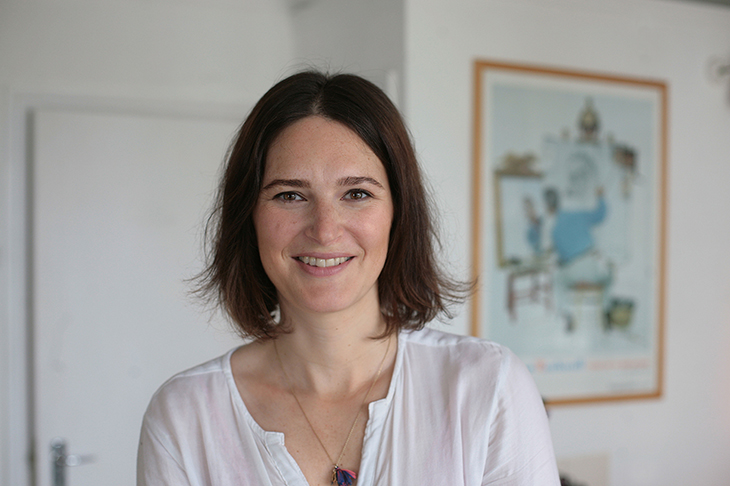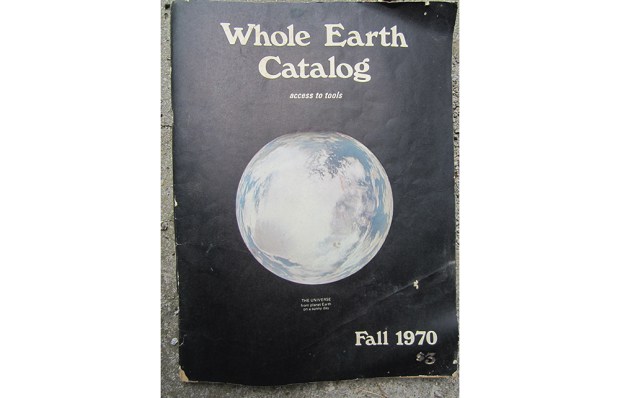Every so often an idea for a show will come along that is perfect, and therefore should never be made. A sitcom based on Julian Assange’s time in the Ecuadorian embassy. Or a gender-flipped version of What Women Want. These are concepts to treasure, to return to, to discuss with friends. Once made flesh though, they disappoint. And this is what happened with the podcast My Dad Wrote A Porno.
Here’s the concept. One Christmas Jamie Morton is asked to review a self-penned manuscript by his dad, which turns out to be astonishingly bad erotica written under the pen-name Rocky Flintstone. Morton recruits two old friends — BBC Radio 1 presenter Alice Levine and producer James Cooper — to read it out and talk about just how bad it is, a chapter an episode. Since the podcast started in 2015 it has done extraordinarily well: it has had millions of downloads and rocketed to the top of best podcast lists. It is now on its fourth series, and this year it was made into a one-off HBO special. The idea is fantastic. The title is brilliant. But the podcast — sorry — just isn’t very good.
For one thing, the premise of the show is that of three witty friends mocking bad erotica. But only one of the friends — Morton — is at all funny. The ‘bad’ writing, on the other hand, is very funny indeed. It entirely carries the thing, to the extent that the banter between the friends feels like an irritating distraction. It often feels, in fact, that it is Flintstone doing the mocking rather than the other way round. Are we really to believe, given that Flintstone has kept producing new material long after the hit first series making fun of his work, that it is written in the spirit of sincerity?
Take episode 1 of the latest series. His heroine Belinda, a glamorous sexpot businesswoman — ‘Steeles Pots and Pans international sales director’ no less — is heading out for a wedding ‘slamming the double padlocked fire door shut behind her’ (why are Dads so obsessed with security?). Characters in attendance have ‘brusque’ moustaches or are ‘piled’ into evening gowns. The bride, meanwhile, ‘slowly makes her way up to the altar, her large nipples quivering at the sound of the bass notes in Handel’s masterpiece’. There is delicious confusion over where and when the drama is set — characters wear ‘lovely’ padded-shoulder dresses, yet ‘succumb to yellow fever’ when ‘posted overseas’. At one point the heroine holds a silent conversation with God about the carpark capacity of the local church. ‘God nodded. Even he was surprised if truth be told.’
Those who like the sound of this might do better to skip the podcast and buy the books (The Belinda Blinked series is available on Kindle). To listen to the podcast is to be aware of an elephant in the room: as the careers of the three fledgeling podcasters take off, when will Morton’s poor dad be allowed to stop doing their homework for them?
Some interviewers are fun to listen to because they make their interviewees uncomfortable. Elizabeth Day is fun to listen to because she does the opposite. In How to Fail with Elizabeth Day everyone is ‘unbelievably talented’, ‘world-changing’, or ‘my best, best friend’, and in the course of all this flattery and warmth her often famous interviewees relax so much that they actually say something interesting. This month it was Phoebe Waller-Bridge — so famous now that tabloids scrap over every tidbit from her life — who talked about the fact, until then barely noticed by the media, that the family setup in her hit show Fleabag mirrors her own. There had been a fallout as a result, and she regretted her failure to warn them. But every episode of this podcast is worth listening to — it is built on the uplifting premise that a good dollop of failure falls into every life, and that sometimes you can learn from it.
Jon Ronson has never been one to avoid a tricky subject. In December 2017, a 23-year-old porn actress named August Ames killed herself. She had been criticised on Twitter for saying she didn’t want to perform acts with male actors who had shot gay porn. Ronson was one of the first to write about shaming on social media, and in this podcast, The Last Days of August, he wades into the circumstances of her death, where he encounters all the dysfunctions of a dark and nasty industry. It is uncomfortable: at moments it is hard not to feel he is exploiting his subjects for an interesting story. But it feels, too, like a story that needs to be told.
Got something to add? Join the discussion and comment below.
Get 10 issues for just $10
Subscribe to The Spectator Australia today for the next 10 magazine issues, plus full online access, for just $10.
You might disagree with half of it, but you’ll enjoy reading all of it. Try your first month for free, then just $2 a week for the remainder of your first year.














Comments
Don't miss out
Join the conversation with other Spectator Australia readers. Subscribe to leave a comment.
SUBSCRIBEAlready a subscriber? Log in